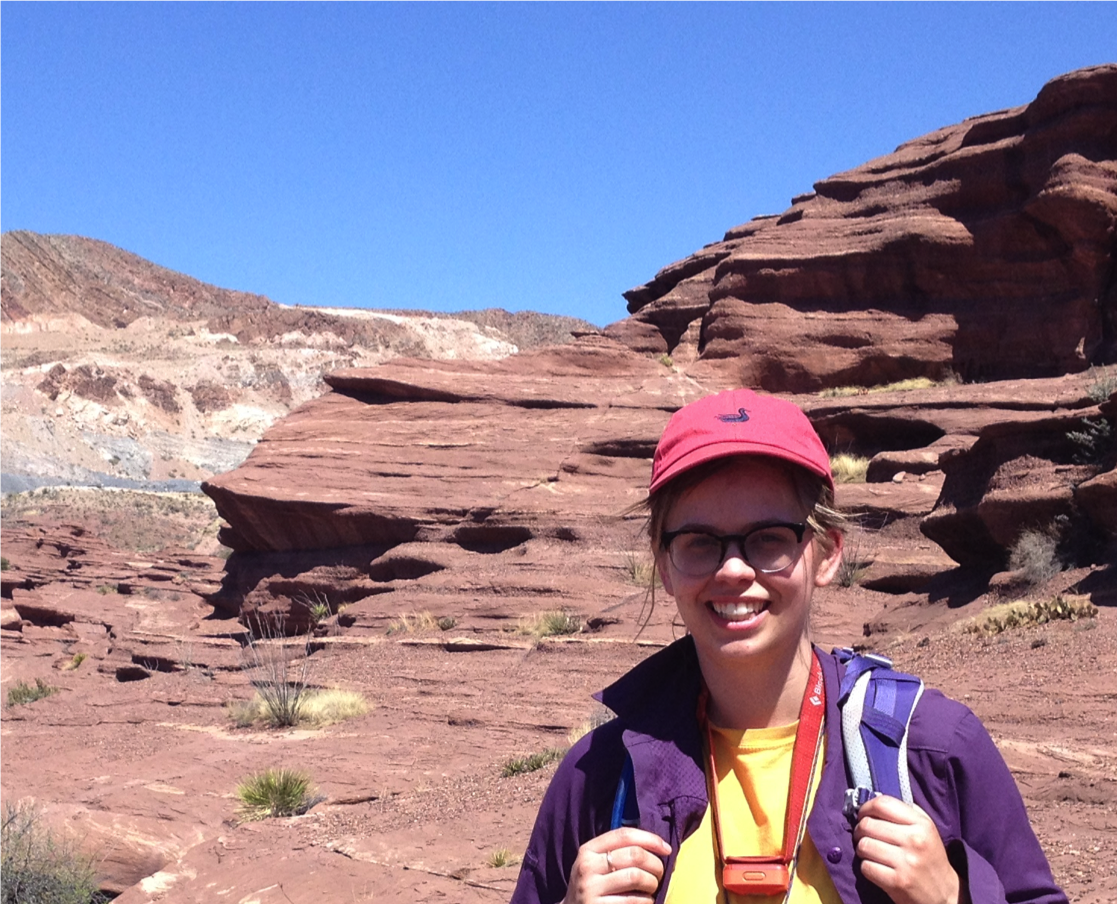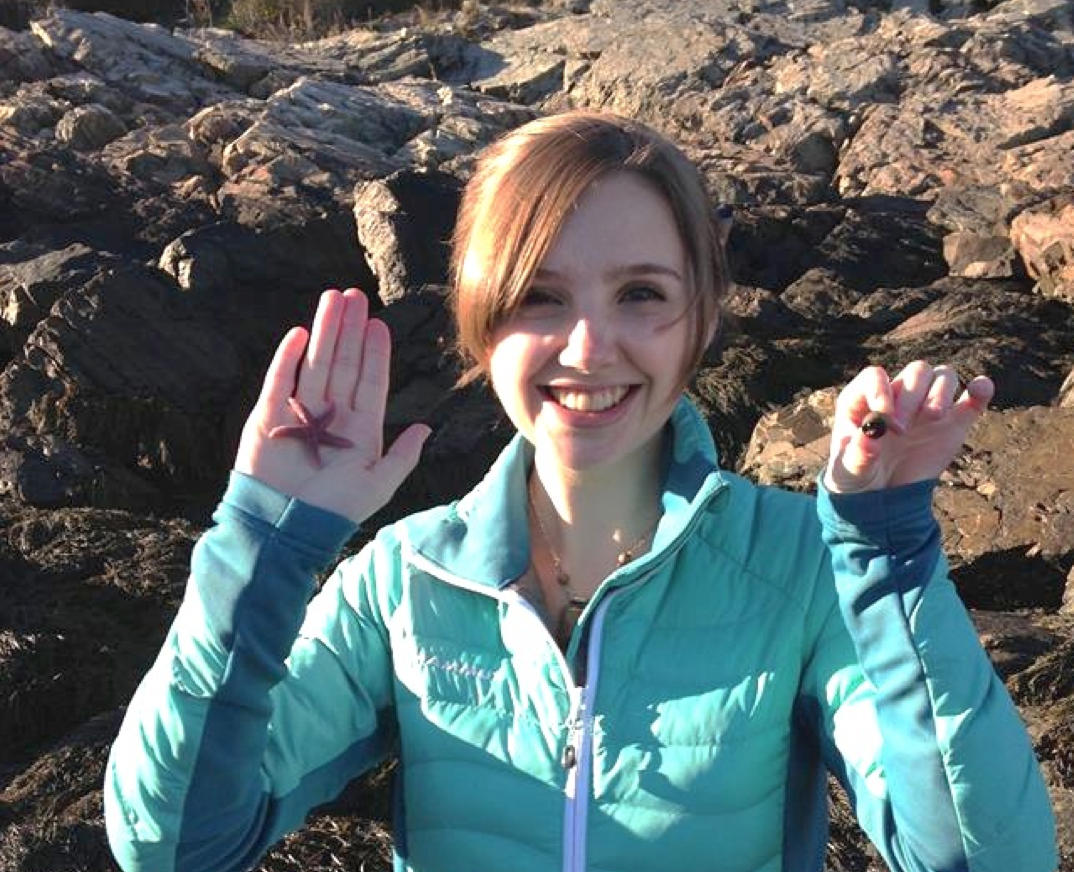MIT, MIT EAPS, News | June 19, 2017
Cantine and Moore Awarded for Excellence
Institute Recognizes Marjorie Cantine and Kelsey Moore as 2017 Graduate Women of Excellence.
Congratulations to EAPSters Kelsey Moore and Marjorie Cantine, honorees of the 2017 biennial celebration of Graduate Women of Excellence, sponsored by the MIT Office of the Dean for Graduate Education (ODGE). The honorees were nominated and selected based on their leadership and service contributions at the Institute, their dedication to mentoring, and their drive to make changes to improve the student experience. A reception, which included poster presentations sharing their work and accomplishments was held in the Brain and Cognitive Sciences Building on April 24, 2017.

Marjorie Cantine is an EAPS 2017 Whiteman Fellow, is a rising third year graduate student in the Bergmann Lab. After graduating in 2013 from Wellesley College with a degree in Geosciences, Cantine spent some time working on Wall Street as an investment banker before heading to grad school. She says “I decided to go to Grad school because I wanted to spend my career thinking about the complex relationships between life and its environments. Grad school is the first step towards this.”
Cantine’s passion is studying the chemistry of ancient rocks to understand how the ocean and Earth were different during the evolution of complex life on this planet. She says “I love the opportunity to do fieldwork outdoors and enjoy applying chemistry and physics to one of the only records of Earth’s ancient environments that we have: the rock record! My work can help us understand how climate played a role in the evolution of the first animals, the consequences of climate change, and help guide our search for complex life elsewhere in the universe.”
Outside of her academic work Cantine is passionate about K-12 outreach and has organized several Career Day events for students to visit MIT and learn about Earth science. Two other personal passions are art and architecture, and she is currently collaborating with artists to explore the junction of art and geology.
Asked what challenges she has faced and how she overcame them, Cantine replies, “I had to change advisors early in my grad school career due to illness. However, thanks to a supportive department, faculty who have been generous with their time and advice, and my own gumption, I have thrived in spite of this.”
When asked what advice she has for younger graduate students in her field Cantine says to never forget “you always have the right to change your mind, so be daring, try new things, and ask questions that make you feel nervous—if things don’t work out, you can always adjust course.”

Kelsey Moore, another rising third year graduate student in EAPS, grew up in Spokane, WA, As an undergrad she majored in geosciences at Smith College where she attributes, in particular, two classes, Geology in the Field and Invertebrate Paleontology, with her love for the study of Earth history and early life.
Moore is currently working on two projects, both relating to the evolution of life on Earth: She is studying 680Ma microfossils that record life after a Snowball Earth Event and the evolutionary history of the ancient photosynthesizing group cyanobacteria. “I am passionate about early life and evolution because I never cease to be amazed at how resilient and incredible life is. The origin of life holds many mysteries, and the possibility of unlocking those mysteries continues to excite me,” she says.
Two of Moore’s passions outside of science “but equally important to science!” are mentoring and promoting women in STEM, to which end, she has tutored at the MIT/Wellesley Upward Bound Program, and is the current President of WiXII (Women in Course XII.) WiXII is dedicated to fostering an environment that respects and supports all members of the EAPS community — including students, staff, faculty, and visitors of all genders, races, ages, sexualities, and abilities — as they further their careers. We serve as an active advocate for women’s and minorities’ rights in the Department, maintaining a space for constructive conversations about equality in academia and the workplace, especially relating to gender and diversity. Unltimately WiXII envisions a respectful, welcoming community that supports the retention and equal treatment of women in all roles in the scientific community and inspires role models for the diverse future generations entering STEM.
Of the challenges she sees herself having faced, and how she overcame them, Moore says, “I was raised by a single mother in a low income family. Despite this fact, my mom made sure to not only provide for my siblings and I, but also chose to follow her own dreams. When I was in middle school, she decided to enroll in the community college. There she fell in love with astronomy and physics, and went on to obtain a bachelors and eventually a Ph D. She was both a single mother, and a full time student, a seemingly impossible balancing act, but she never gave up. This inspired me at a young age to pursue my dreams.”
“At Smith [College], I was lucky enough to enter science in an environment that was designed to promote women. Throughout this time though I was aware of the inequality and difficulties facing women in the broader STEM and academic communities. In graduate school I have seen this first hand. Through my own experience, and those of my peers, I realized that the culture surrounding women in science needed to change. It was for that reason that I and other women in my department decided to create WiXII. With this group we have begun to encourage conversations about the problems that women face in science and academia, and the strategies through which we can effect change.”
” I am quiet by nature, but I am always willing to fight for what I believe in. This is true both of my passion for research , and my deep belief that women are capable and deserving of success in science. People sometimes underestimate me because I’m not always outwardly vocal about my opinions but the battle to promote women in science is one that I feel bound to continue to fight.”
As to advice for new graduate students in her field, Moore says, ” Never give up. And find a support system. As long as you have passion for what you are doing, you can achieve your dreams.”






